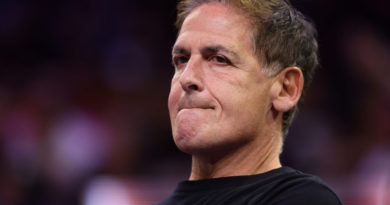Top economist Mohamed El-Erian says unlimited deposit guarantee is hard to reverse after SVB fallout: ‘We are now in a different world’
Silicon Valley Bank’s crisis and subsequent closure has rocked financial markets since late last week. In a bid to protect depositors and investors, federal regulators announced Sunday that they would “address any liquidity pressures that may arise.”
Many people have described the emergency measures as a bailout and say that they mark a major shift in how the federal government deals with banking crises. Until now, only deposits up to $250,000 were insured under federal law. But the Sunday decision by regulators will protect all deposits made at SVB and crypto-heavy Signature Bank, which regulators wound down on Sunday, to avoid “systemic risk.”
“We’ve changed the system,” economist Mohamed El-Erian, president of Queens’ College at the University of Cambridge, told CNBC’s Squawk Box on Monday. He also echoed Roger Altman, founder of investment bank advisory firm Evercore, that “we are now in a different world.”
“Did we need to do all this? I think given the urgency over the weekend and the fact that there was no perfect policy response, we had to make some compromises,” El-Erian said about the federal government’s intervention.
Despite the fear that many individuals and small companies would lose their deposits because of Silicon Valley Bank’s failure, El-Erian is confident that its customers will get their money back.
“Depositors should not worry. Your deposits are fine,” he said. “It is almost impossible now to go back on unlimited deposit guarantee.”
Shortly after Silicon Valley Bank’s troubles started, investors had called on federal regulators to safeguard bank deposits. On Friday, billionaire investor Bill Ackman, head of Pershing Square Capital Management, tweeted about how a government bailout “should be considered” if private capital can’t resolve the issue of making depositors whole. After federal officials acted on Sunday, he said the government “did the right thing.”
Another effect of the banking crisis could be on the Fed’s monetary policy. For the past year, the Fed has been hiking interest rates to curb inflation, and that was set to continue into the rest of 2023. Now that SVB and Signature Bank have failed over the past few days, the Fed may rethink further interest rate increases at its next meeting later this month, El-Erian said. Rising rates were the source of SVB’s problems, according to Treasury Secretary Janet Yellen.
“We had a prolonged period of overly loose monetary policy. When it came to adjusting monetary policy, the Fed did not act fast enough, and then it had to hit on the brakes,” El-Erian said referring to the Fed’s interest rate increases.
With the US #SVB-related bailout going beyond what many expected, markets see it as more than protecting deposits and small #tech
The immediate move in 2-year bonds points to the view that,by treating this as a systemic threat,the #Fed will also retreat from its #inflation battle pic.twitter.com/pwwNgRCtdz— Mohamed A. El-Erian (@elerianm) March 13, 2023
Although the Fed may consider revising its approach to interest rates, El-Erian said the central bank must not completely halt increases because inflation is still a major problem.
“Markets have voted that the Fed will back away from its inflation fight,” he said. “I would hike by 25 basis points, explaining that I have other tools that I can use for financial stability reasons,” he told CNBC.
Fortune’s CFO Daily newsletter is the must-read analysis every finance professional needs to get ahead. Sign up today.


